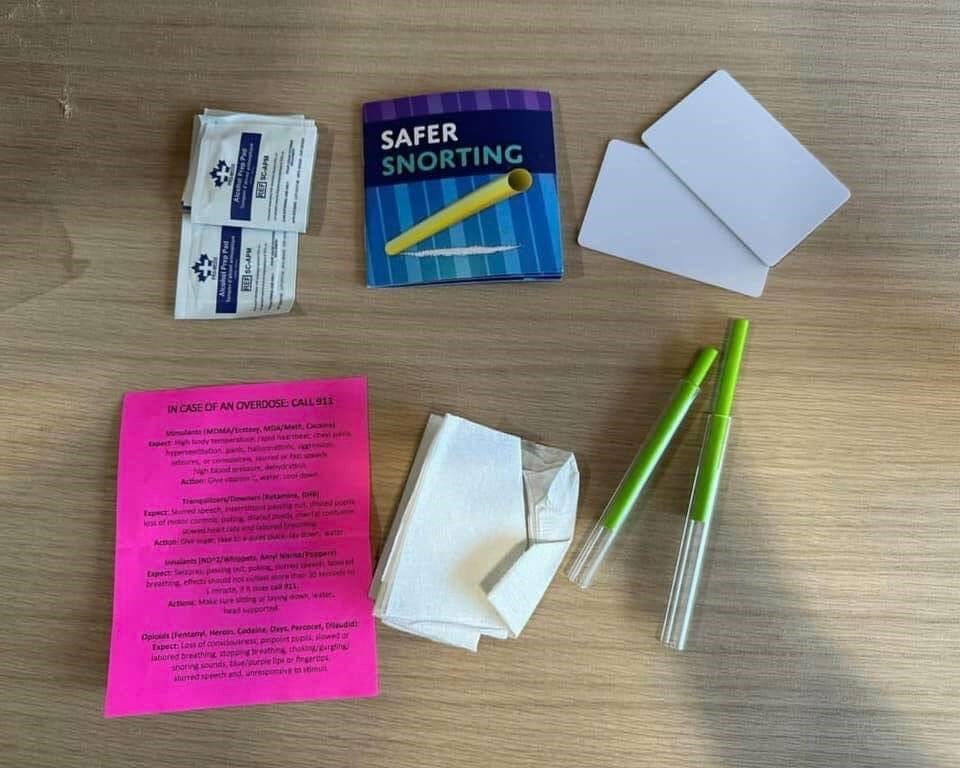I read an article this week by Jeff Bell regarding materials left at a high school in the Cowichan Valley after a presentation on drugs.
The package included information on safe-drug snorting, small cards for cutting lines, and straws for snorting.
The Cowichan Valley School District said it supports harm reduction and education for students, but the materials left for students were not appropriate.
At first, the headline just piqued my interest — I wondered what could have been given to students that made headlines. As I read on, I felt myself morph from interested reader to one who is the parent of a teenager.
The parent in me wouldn’t want my daughter to be provided with materials for using drugs, but after some reflection, I realized that the issue for me wasn’t the small cards or straws, but the thought of kids — including mine — doing drugs.
I have card stock at home and a box of paper straws, so the items in the bag could be easily found in my home, and most of yours. A straw isn’t going to be the catalyst for teen drug addition. I’ve been around straws and cards my entire life and never snorted drugs.
It is human nature to be worried when the dangers of drugs, sex, suicide and predators arise with our children in the equation. These things are scary, they can be fatal, and it’s our job to keep our kids safe.
It’s terrifying, but the discomfort doesn’t come from the education, or materials — it comes from the realization that our children are at risk.
The article also noted that the material advised students to have condoms with them in case they had sex while high. There’s no denying that’s good advice.
I was telling my daughter about my generation’s childhood, when parents sent their kids to play outside unsupervised, and as teenagers we could travel across the city, we didn’t have cellphones and parents didn’t have much oversight of what their kids were up to.
We got into our fair share of trouble and made some bad choices along the way.
As parents, we may feel more connected to our kids because we put them in organized activities and they have cellphones so we can reach them, or check their locations. The truth is, however, that with those phones, our children have access to far more than we could have ever dreamed of as kids.
The internet is like a genie for youth — they make a request and the information is granted. No matter what parental controls we have, if there is a will, there is a way.
You can search for exactly what you want to find, and it will be there. It’s confirmation bias at its best — you can find sites that tell you the earth is round, and others that the earth is flat.
Your kids will find the information they want.
As I wrote this column, I thought of Heather McLean, the 17-year-old Esquimalt teen who died of an overdose in 2017. McLean told her parents that she didn’t worry about fentanyl because she paid extra for non-laced cocaine.
Teen years are tough. It’s a time when youth start to feel a little more in control of their lives. They want to take risks, have fun and enjoy their friends.
Some of the worst decisions I ever made were when I was young, because I wasn’t thinking things through. I wasn’t reflecting on risks.
When you are young and not making the best choices, the last place you want to go for questions is your parents.
The folks who come into schools and have the tough conversations with our kids, and leave them with some materials, might be the people who can guide them into making better choices, mitigating risks and hopefully avoiding fatal decisions.
The truth is, I would be upset if my daughter came home with a small packet of supplies for snorting drugs.
But logically, I know it’s far better for her to have access to accurate information.
>>> To comment on this article, write a letter to the editor: [email protected]



